Omar meditated as workers drilled, hammered, poured, pounded, sifted, sorted, packaged, shipped, received, laughed, cried and analyzed their efforts to make it heavy, deep and real.
A newspaper in the Marrakesh souk whispered about trillion dollar foreign wars. An endless labyrinth of global deficit spending prospered in a radiant mathematical certainty.
At Djemaa El Fna I perused old Touareg jewelry, rainbow carpets, silver bowls, cracked dishes, green ionized utensils, long leather bullwhips, elaborate Berber bags and junk. Dealers bought and sold pots, pans, brass and silver.
The day was hot and the souk was cool. I evolved into F/stop sense trapping light and freezing time.
Writing with light I followed leather smells along narrow corridors into a zone of low wages, unregulated workshops and child labor exploitation. Poverty’s people hung scraps of clothing on thin lines in stale air.
Inside a small room, a ten-year old boy slaving his six-day week for $6 applied coats of thick viscous liquid paste to leather.
“May I make an image?”
“100 Dirhams,” said an older boy punching holes in leather.
Metalworking, jewelry and mosaic making were the most hazardous jobs for children because of the chemicals. Children making slippers were exposed to glue vapors. Dust caused respiratory problems for children working in pottery sheds. Child labor was linked to the politically sensitive question of educational opportunities.
Poor families globally see education as an expensive waste of money & time.
There’s little pressure from local political parties, trade unions, or wider public opinion for any legislation on child labor.
UNICEF targeted Moroccan authorities to persuade artisans to stop hiring children under twelve and release those already employed for a few hours of schooling each week.
The bare room was 8x10 and filled with noxious fumes. No ventilation. I negotiated without inhaling. One dim bulb heaven, empty walls with leather punching tools and piles of treated leather needing a brush.
“Too much.”
We engaged in a broken animated conversation. No deal. I walked. Show them the soles of your shoes. Singing boys glued magic slippers.
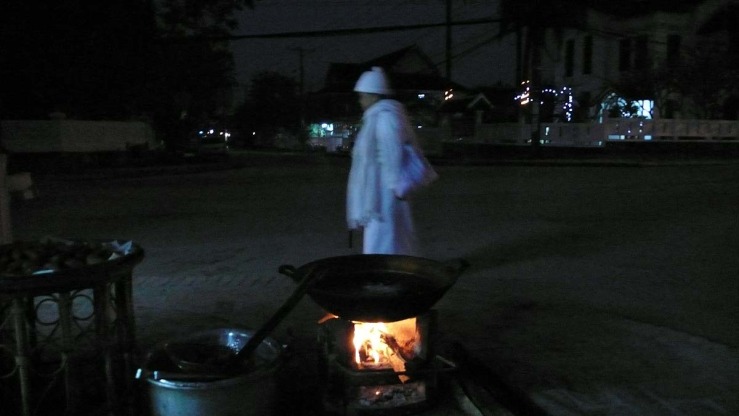
*
Animal pelts hung from wires in the old slave market. Leopard, fox, and rabbit complemented long wide boa constrictor skins. There was a falcon in a cardboard box and a young nervous eagle in a cage.
“How are you?” said a boy.
“Good, thank you.”
“Is everything ok?”
“Yes, I’m just having a look. How much is your eagle?”
“For you I make a special price. Morning price. Two thousand.”
“Two thousand? ($200) Expensive. How old is it?”
“It is two-years old. It is from the Atlas Mountains. For you I make you special price, morning price. Brings me good luck.”
“You make your own luck. I’ll think about it.”
I wanted to buy the eagle, get on a Super Tour bus, reach the Atlas Mountains, hike to a stone village in a blue-fogged valley and release the predator. Trapped in humanity’s cage starving for food, water and freedom I needed someone to release me in clear mountain air.
I turned to photograph men pushing and pulling a donkey dragging a cart through a broken wooden gate.
“Where are you going?”
“Maybe I’ll be back.”
“Come, mister,” said the desperate boy grabbing my vest, “come here see this animal skin. It makes a strong medicine. It helps you with your wife.”
“My wife doesn’t need help.”
“Where is she? We have many perfumes.”
“She’s wandering around. She smells a good deal when she nose it.”
“Maybe spices, maybe you like spices.”
“Maybe.”
“Maybe you are looking for something more powerful,” he said, “something to take with your tea, a special blend from the Rif Mountains?”
“What is it?”
“Ah, it is a fine, how do you say, potion, a special blend from a mysterious plant. Hash helps assassins forget their troubles. It protects them in heroic battles against sticks, stones and drones. No hash? Then perhaps a little of this balm might interest you. Here, try a sample. Rub a little on your temples. It takes away pain.” He opened a tin and smeared red paste on his fingers.
“No thanks, I’m ok. Pain is a sickness leaving the body. Suffering is an illusion. See you later.”
I dissolved into a swirling unedited film where sense data, memory and imagination were unified as director, player and audience.
The sun burned through the Red City reflecting shadows and dust. As men shoveled dirt others hauled bricks in broken wheelbarrows to a lot. A man with bleeding hands laid them to infinity.
Donkeys clipping along a fractured road dragged carts overflowing with boxes of fruit and vegetables. They pulled loads of mattresses, end tables and cabinets to distant destinations.
Homes were all cinder block. Men made the blocks and loaded them on pallets so donkeys could pull them to sites where they waited for generations to finish their education and get to work.
Beasts of burden labored past men and boys repairing bikes and inoperable scooters.
Poor people took bus 11. Walk.
Women with babies strapped to backs drifted through red dust. Old men in jellabas hooded against wind shuffled in bright yellow slippers.
In dusty alleys men chopped tea bought from an old man on his bike offering fresh mint spilling from crushed baskets.
Men crammed leaves into a dented tea kettle, poured in boiling water, threw in blocks of white sugar, closed the lid, filled a small glass, swished it around and poured it back into the kettle with ballet dexterity.
Bad teeth decayed in hungry mouths.
A beggar shuffled past reciting the Qur’an. Waiting to feel a coin his open hand held everything. On Fridays someone gave him Dirhams.
Swarms of flies and starving cats patrolled perimeters near a butcher removing white fat. Young kittens in deserted dark corners waited for inevitable death. Happy children returning from school sampled dates, calendars and centuries. Girls carried fresh kneaded bread to a neighborhood oven for baking. Veiled babbling women haggled with sellers of henna, saffron, turmeric and aromatic spices.
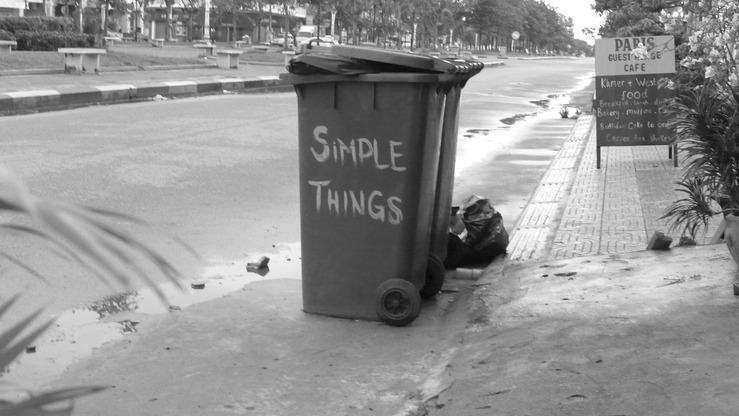
At Djemaa El Fna a dancer in white robes, red sash and maroon hat wearing bells and clappers twirled as friends pounded drums. Sedated white tourists dropped coins in a sorting hat. Europeans entered the show of shows.
A musician played his flute. Black cobras fanned diamond skinheads. Exchange rates were favorable. Water sellers worked crowds selling H2O from goatskin bags. They poured life into jangling brass bowls hanging from their creased necks. Photos with tourists cost extra.
Packed tour buses competed with humans, petite cabs, grand Mercedes taxis, pedestrians and horse drawn carriages. Desperate shoeshine boys banged on wooden boxes inspecting shoes of idle men sitting in cafes watching idle people watch idle people.
A boy draped in clothing wandered through a cafe trying to interest men to purchase a khaki vest with many pockets, the latest fashion statement. Men wore them buttoned and well pressed with empty compartments. A man tried on a couple. They discussed price. The boy was tired and persistent. The man found a reason or excuse not to buy it because of price, size, or too embarrassed to admit he didn’t really want it or need it. The boy put the vest on a hanger, gathered clothing, trudging toward idle men at another cafe. They read newspapers, drank tea, smoked and chatted with friends in their city oasis.
Red, blue and yellow carpets draped over ochre roof edges created a patchwork of adobe, blue sky, white mosques spires and a cold crescent moon.
Rows of men squeezing orange juice yelled for customers, “Come here my friend, I have what you need.”
Salesmen bagged fresh dates, figs and nuts.
Souk seller beckoned people, “Have a look at my shop.”
Shops were crammed with leather, ceramics, swords, clothing, lamps, rugs, hats, spices, shoes, knockoffs and scented cedar tables.
Men in a one-light bulb heaven scrapped scented wood or pounded leather on steel platforms as well manicured idle wealthy men in clean white shirts, pressed pants and leather shoes slouched near their Berber carpet shops discussing prosperity and idyllic life.
Young men up and down alley mazes competed with each other for Dirhams as young sellers advertised Adidas Berber merchandise. The world was full of merchandise. Buyers and sellers competed for the best steal deal. The art of negotiation played a litany.
Always Be Closing.
At Djemaa a black Cobra gunship helicopter emerged from under a thin goatskin drum to unravel its three-foot long body on a threadbare carpet. When tourists approached, a young boy waved his hand close to the reptile grabbing its attention. Rearing with a flared black hood it weaved with the boy’s gestures. Playing an old game of survival, they danced and darted toward each other. Tourists dropped spare change on the carpet and wandered away to get lost.
An old stoic Berber in shade hoping to sell red yarn played with the dial on his dusty portable radio looking for a new frequency and better reception.
Hustlers plying language skills switched from German to English to French to Japanese trying to initiate conversations with blind tourists. Everybody wanted a slice of a diminished post-9/11 pie.
Humanity floated through broken reed shadows.
ART
Adventure, Risk, Transformation - A Memoir
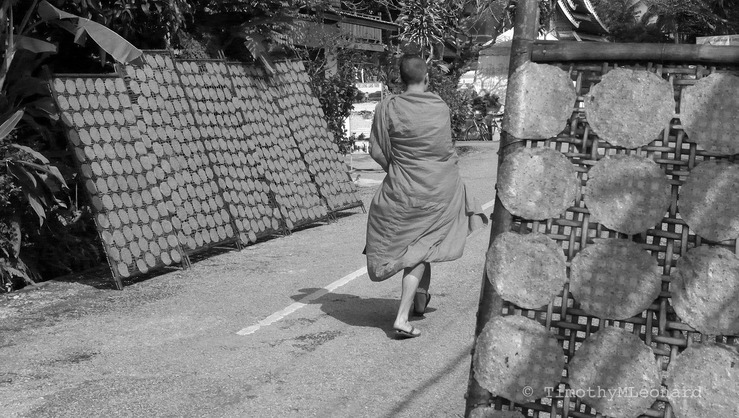
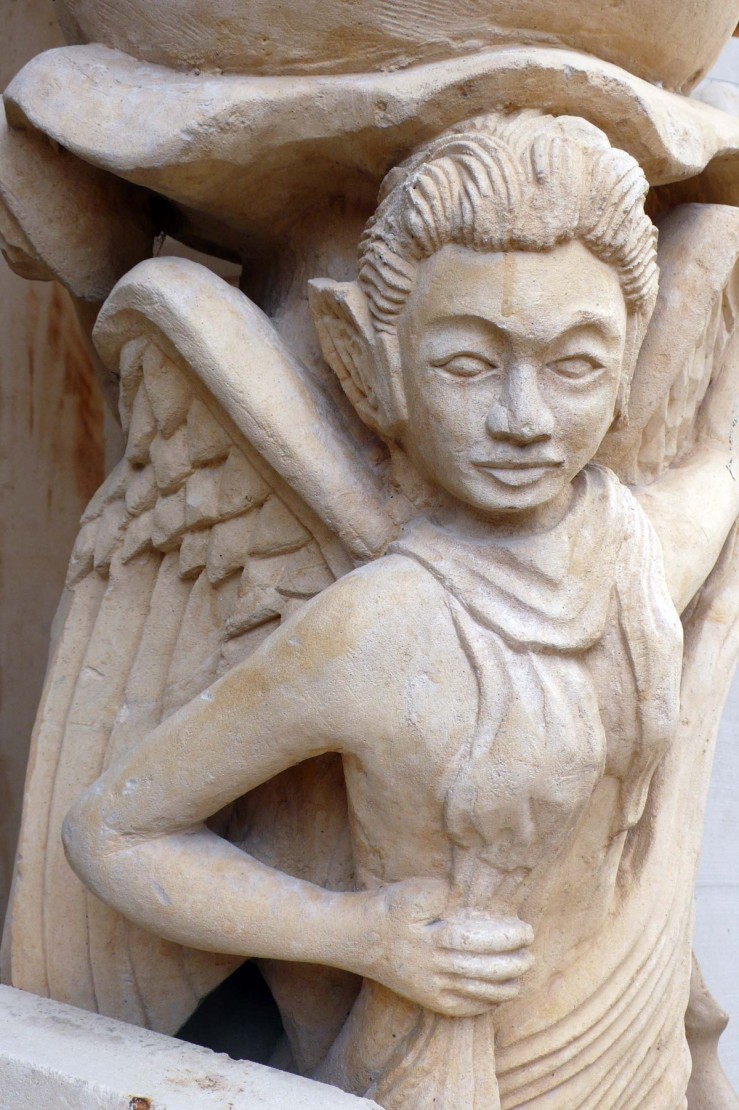







 Share Article
Share Article 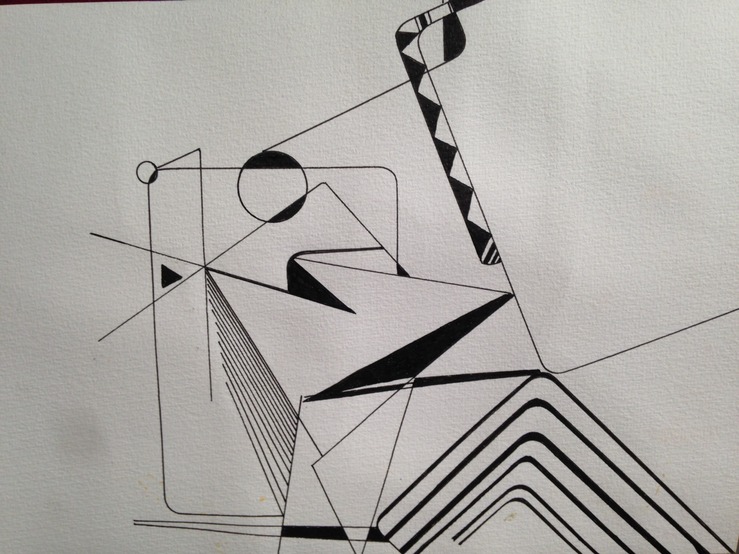






![Book of Amnesia Volume 1 by [Timothy Leonard]](https://m.media-amazon.com/images/I/51bLipg6kyL.jpg)


